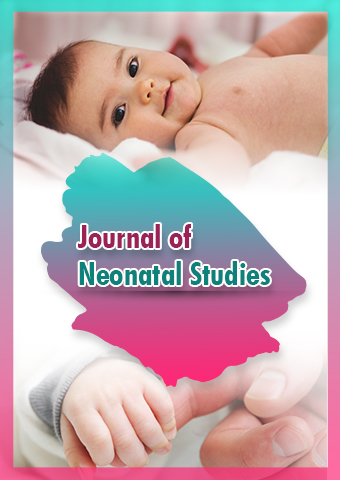Opinion Article - Journal of Neonatal Studies (2024) Volume 7, Issue 5
Overview of Neonatal Intensive Care Units (NICUs)
- Corresponding Author:
- Jessica Ava
Department of Neonatal Intensive Care, Cardiff University, United Kingdom
E-mail: jeddica_ava@cardiff.ac.uk
Received: 02-Sep-2024, Manuscript No. JNS-24-150533; Editor assigned: 04-Sep-2024, PreQC No. JNS-24-150533 (PQ); Reviewed: 18-Sep-2024, QC No. JNS-24-150533; Revised: 23-Oct-2024, Manuscript No. JNS-24-150533 (R); Published: 30-Oct-2024, DOI: 10.37532/JNS.2024.7(5).276-278
Introduction
Neonatal Intensive Care Units (NICUs) are specialized hospital wards designed to provide comprehensive care for newborns who are critically ill or born prematurely. These units are equipped with advanced medical technology and staffed by a multidisciplinary team of healthcare professionals dedicated to ensuring the best possible outcomes for high-risk infants. This article provides an in-depth overview of NICUs, including their purpose, organization, equipment, and the roles of healthcare providers within these units.
Description
Purpose of NICUs
The primary purpose of NICUs is to care for newborns who require intensive medical attention due to a variety of conditions, such as prematurity, low birth weight, congenital anomalies, respiratory distress, infections, and other complications. NICUs provide a controlled environment where these vulnerable infants receive continuous monitoring, specialized treatments, and support to stabilize their health and promote growth and development.
Levels of neonatal care
NICUs are classified into different levels based on the complexity of care they provide:
Level I (Newborn nursery): Provides basic care for healthy, full-term infants and late preterm infants who require minimal medical intervention. Level I units offer routine newborn care, including monitoring, feeding support, and management of minor health issues.
Level II (Special care nursery): Offers intermediate care for moderately ill infants or those born at 32 weeks’ gestation or later. These units provide specialized care for conditions such as mild respiratory distress, jaundice, and infections that do not require intensive treatment. Level II units also support feeding and growth in stable preterm infants.
Level III (NICU): Provides comprehensive care for critically ill newborns and those born before 32 weeks’ gestation. Level III NICUs offer advanced respiratory support, including mechanical ventilation, Continuous Positive Airway Pressure (CPAP), and high-frequency oscillatory ventilation. These units are equipped to perform invasive procedures, such as central line placement and surgery, and provide specialized care for complex medical conditions.
Level IV (Regional NICU): Offers the highest level of neonatal care, including advanced surgical procedures and specialized treatments for the most critically ill infants. Level IV NICUs are typically located in tertiary care centers and serve as referral hubs for lower-level units. These units provide comprehensive care for infants with severe congenital anomalies, complex cardiac conditions, and other life-threatening illnesses.
Equipment and technology in NICUs
NICUs are equipped with state-of-the-art technology to monitor and treat critically ill newborns.
Some essential equipment and technology found in NICUs include:
Incubators and radiant warmers: These devices help maintain the body temperature of preterm and low birth weight infants who cannot regulate their own temperature. Incubators provide a controlled environment with regulated temperature, humidity, and oxygen levels.
Ventilators and respiratory support: Mechanical ventilators, CPAP machines, and nasal cannulas provide respiratory support for infants with breathing difficulties. Advanced ventilators offer various modes of ventilation to match the specific needs of each infant.
Monitors: Continuous monitoring of vital signs, such as heart rate, respiratory rate, blood pressure, and oxygen saturation, is essential for detecting changes in an infant’s condition. Monitors display real-time data and trigger alarms when parameters fall outside the normal range.
Infusion pumps: Infusion pumps deliver precise doses of medications, fluids, and nutrition to infants. These devices ensure accurate administration of essential treatments.
Phototherapy units: Phototherapy units use blue light to treat neonatal jaundice by breaking down excess bilirubin in the baby’s skin. These units are commonly used in NICUs to prevent complications from high bilirubin levels.
Portable imaging equipment: Portable ultrasound, X-ray, and echocardiography machines allow for on-site imaging and diagnosis of various conditions, reducing the need for transporting critically ill infants to other departments.
Healthcare providers in NICUs
NICUs are staffed by a multidisciplinary team of healthcare professionals who work together to provide comprehensive care for newborns. Key members of the NICU team include:
Neonatologists: Pediatricians with specialized training in neonatal care who oversee the medical management of critically ill infants. Neonatologists coordinate the care team, develop treatment plans, and perform complex procedures.
Neonatal nurses: Registered nurses with advanced training in neonatal care who provide direct care to infants. They monitor vital signs, administer medications, assist with feeding, and offer support to parents.
Respiratory therapists: Specialists who manage respiratory support and ventilation for infants with breathing difficulties. They perform procedures such as intubation, administer respiratory treatments, and monitor the effectiveness of respiratory support.
Nurse practitioners and physician assistants: Advanced practice providers who assist neonatologists in managing the care of infants. They perform assessments, develop care plans, and conduct procedures under the supervision of neonatologists.
Pharmacists: Pharmacists in NICUs ensure the safe and accurate preparation and administration of medications. They provide dosing recommendations, monitor for drug interactions, and offer guidance on medication management.
Dietitians: Specialized dietitians develop nutrition plans tailored to the needs of preterm and critically ill infants. They ensure that infants receive the appropriate nutrients for growth and development.
Physical and occupational therapists: Therapists who assess and support the motor development of infants. They provide interventions to promote movement, muscle strength, and coordination.
Social workers and psychologists: Mental health professionals who offer emotional support and counseling to families. They help parents cope with the stress of having a critically ill infant and connect them with resources and support services.
Family-centered care in NICUs
Family-centered care is a fundamental principle in NICUs, recognizing the importance of involving families in the care of their infants. Key aspects of family-centered care include:
Parental involvement: Encouraging parents to participate in their infant’s care, including feeding, bathing, and comforting. NICUs provide education and support to help parents feel confident in their caregiving roles.
Kangaroo care: Promoting skin-to-skin contact between parents and their infants. Kangaroo care has been shown to improve bonding, stabilize vital signs, and promote breastfeeding.
Communication and education: Providing clear and consistent communication with parents about their infant’s condition, treatment plan, and progress. NICUs offer educational resources and support groups to help parents navigate the NICU experience.
Support services: Offering services such as counseling, social work, and financial assistance to address the emotional and practical needs of families.
Challenges in NICU Care
Despite advancements in neonatal care, NICUs face several challenges:
Resource constraints: Limited availability of NICU beds and specialized equipment can impact the ability to provide timely care for all infants in need.
Staffing shortages: Shortages of trained neonatal healthcare professionals can strain existing staff and affect the quality of care.
Parental stress: The experience of having a critically ill infant in the NICU can be emotionally overwhelming for parents. Providing adequate support and resources to families is essential for their well-being.
Long-term outcomes: While NICUs improve the survival rates of critically ill infants, many infants face long-term health and developmental challenges. Ongoing follow-up care and support are crucial for addressing these issues.
Research and future directions
Ongoing research and innovation in neonatal care continue to improve outcomes for critically ill infants. Some areas of focus include:
Neonatal research: Conducting clinical trials to evaluate new treatments, technologies, and interventions that enhance neonatal care and outcomes.
Advancements in technology: Developing new medical devices and monitoring systems that provide more precise and less invasive care for infants.
Genetic and genomic research: Exploring the genetic factors that contribute to neonatal conditions and developing targeted therapies based on genetic insights.
Improving family-centered care: Enhancing support services and resources for families to ensure their active involvement in their infant’s care and well-being.
Conclusion
Neonatal Intensive Care Units (NICUs) play a vital role in providing specialized care for critically ill and premature infants. Through advanced technology, multidisciplinary teamwork, and a commitment to family-centered care, NICUs strive to achieve the best possible outcomes for these vulnerable newborns. Continued research, innovation, and support for families are essential for advancing neonatal care and improving the health and well-being of infants worldwide.

